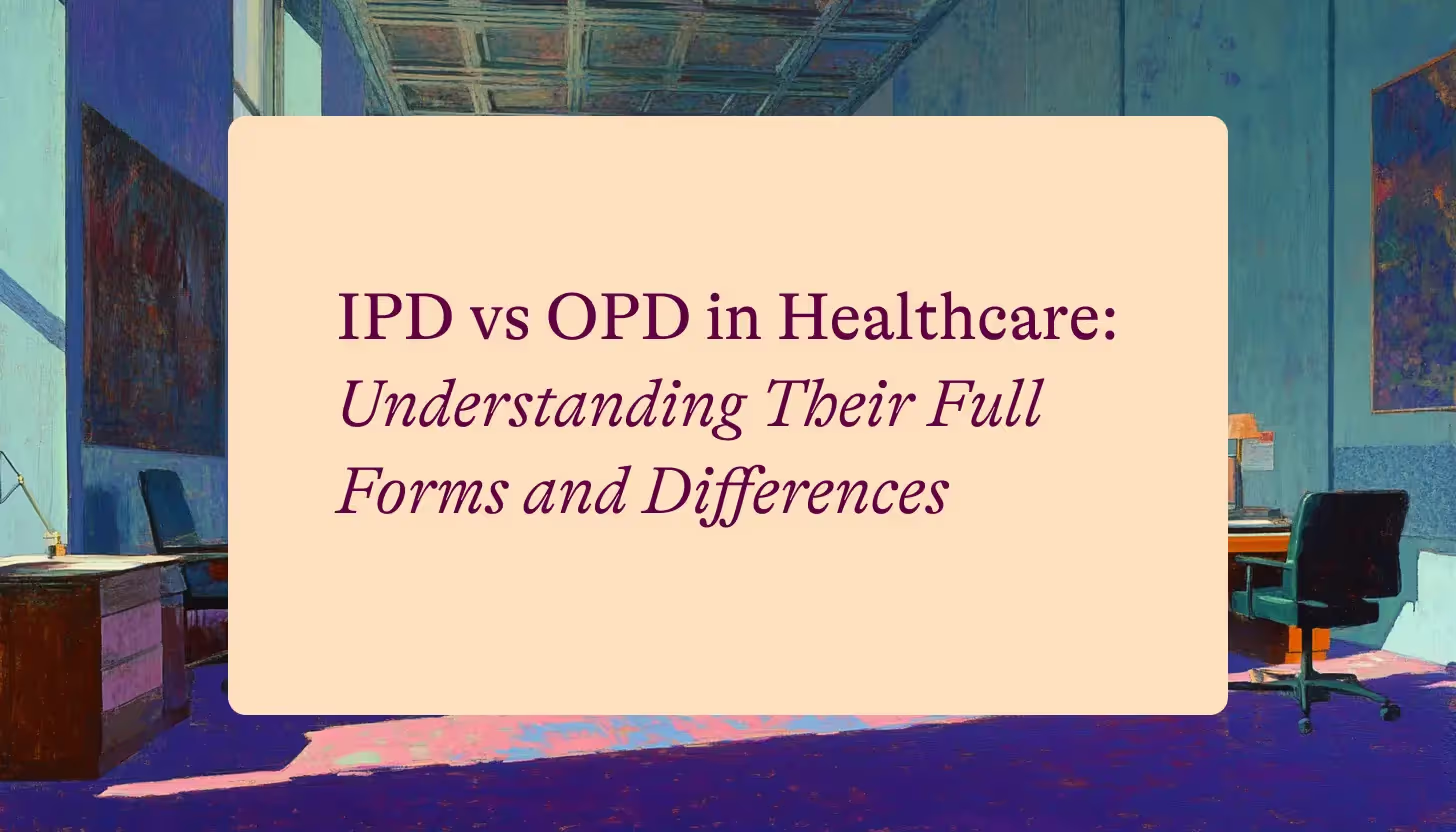OPD Full Form
In the world of group health insurance, OPD stands for 'Out-Patient Department.' Now that we've clarified the full form of OPD, let's delve into understanding what it means in practical terms.
What is OPD Cover?
Health insurance is a crucial aspect of managing one's healthcare needs. Within the broad umbrella of health insurance, OPD cover has its unique place. Simply put, OPD cover refers to insurance that provides coverage for medical expenses incurred during treatments that do not require an overnight stay in a hospital. These can include doctor consultations, diagnostic tests, and pharmacy bills.
[[cta-banner-5]]
Types of OPD Expenses Coverage in Health Insurance
The coverage offered by OPD insurance varies from one plan to another. Generally, they can be categorized into:
Standard OPD Cover: These plans typically cover basic out-patient expenses such as doctor consultations, diagnostic tests, and medicines.
Comprehensive OPD Cover: As the name suggests, these provide a wider range of coverages including dental treatment, eye care, and even alternative therapies.
Get a Quote: Group Personal Accident Insurance
Benefits of OPD
OPD covers, because of their comprehensive nature, offer numerous benefits. These include:
[[cta-banner-5]]
What's Covered Under OPD Health Insurance Plans
OPD health insurance plans typically cover a range of medical expenses incurred outside of hospitalization. These can include:
What's Not Covered Under OPD Health Insurance Plans
While OPD health insurance plans offer extensive coverage, certain expenses are typically not covered. These include:
[[cta-banner-5]]
Factors to Consider While Buying OPD Health Insurance Plans
When purchasing an OPD health insurance plan, consider these factors:
FAQs
Q: Is it worth buying OPD cover?
A: Yes, OPD cover can greatly assist in managing recurring medical costs, especially for people with chronic conditions.
Q: Can I use OPD cover immediately after buying?
A: Usually, there is a waiting period. You should check this with your insurance provider.
Q: Are all medicines covered under OPD?
A: Prescribed medicines are generally covered, but the specific coverage may vary based on the policy.
Q: How does one file a claim for OPD expenses under a health insurance plan?
A: To file an OPD claim, first gather all bills and receipts from your doctor visits, tests, and pharmacy purchases. Next, fill out the claim form provided by your insurer. Attach the necessary documents and submit them to the insurance company. The process might vary slightly among insurers, so it's wise to check with your provider for specific requirements. Typically, claims are processed within a few weeks, after which you'll receive reimbursement for covered expenses.
Q: Are there any specific exclusions or limitations for coverage of alternative therapies under comprehensive OPD cover?
A: Comprehensive OPD cover does include alternative therapies, but with certain conditions. Coverage often depends on the therapy being recommended by a certified medical practitioner. There might also be a cap on the number of sessions or a limit on the amount reimbursed. It's important to read the policy details or consult with your insurer to understand the specific exclusions and limitations related to alternative therapies.
Q: Can OPD cover be added to an existing health insurance policy, or does it need to be purchased as part of a new policy?
A: OPD cover can sometimes be added as a rider to an existing health insurance policy, offering flexibility to policyholders seeking comprehensive coverage. However, the option to add OPD cover varies by insurer and policy. In some cases, it might only be available with new policies or specific plans designed with OPD coverage included. To know for sure, contact your insurance provider. They can advise whether you can enhance your current plan with OPD cover or if you need to consider a new policy.
OPD cover is a crucial aspect of a comprehensive health insurance plan. It covers a wide range of medical expenses incurred outside of hospitalization, thereby being an invaluable tool for healthcare expense management. Thus, it is an option worth considering when purchasing health insurance in India.
.avif)










.avif)














